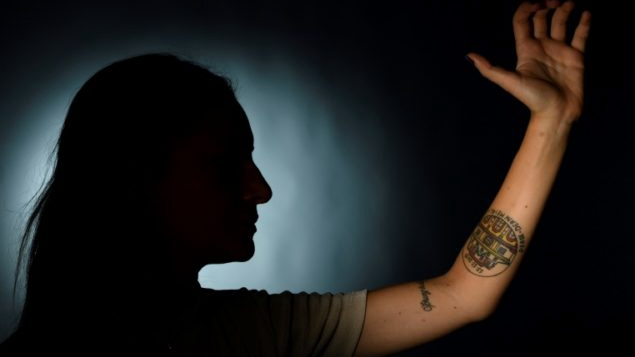“I’m not going to be killed by some guy in jogging pants,” one of the Bataclan survivors told herself as jihadists raked the Paris concert hall with gunfire.
Remarkable testimony from dozens of survivors of the bloodbath form the core of a new three-part documentary about the Nov. 13 carnage by the French brothers who won an Emmy for “9/11,” the inside story of the heroics of New York firefighters on Sept. 11, 2001.
Although filmmaker Jules Naudet was in the World Trade Center when the second plane struck — after already capturing the first one hitting the North Tower — he and his brother were not in Paris when the attackers struck in November 2015, killing 130 people.
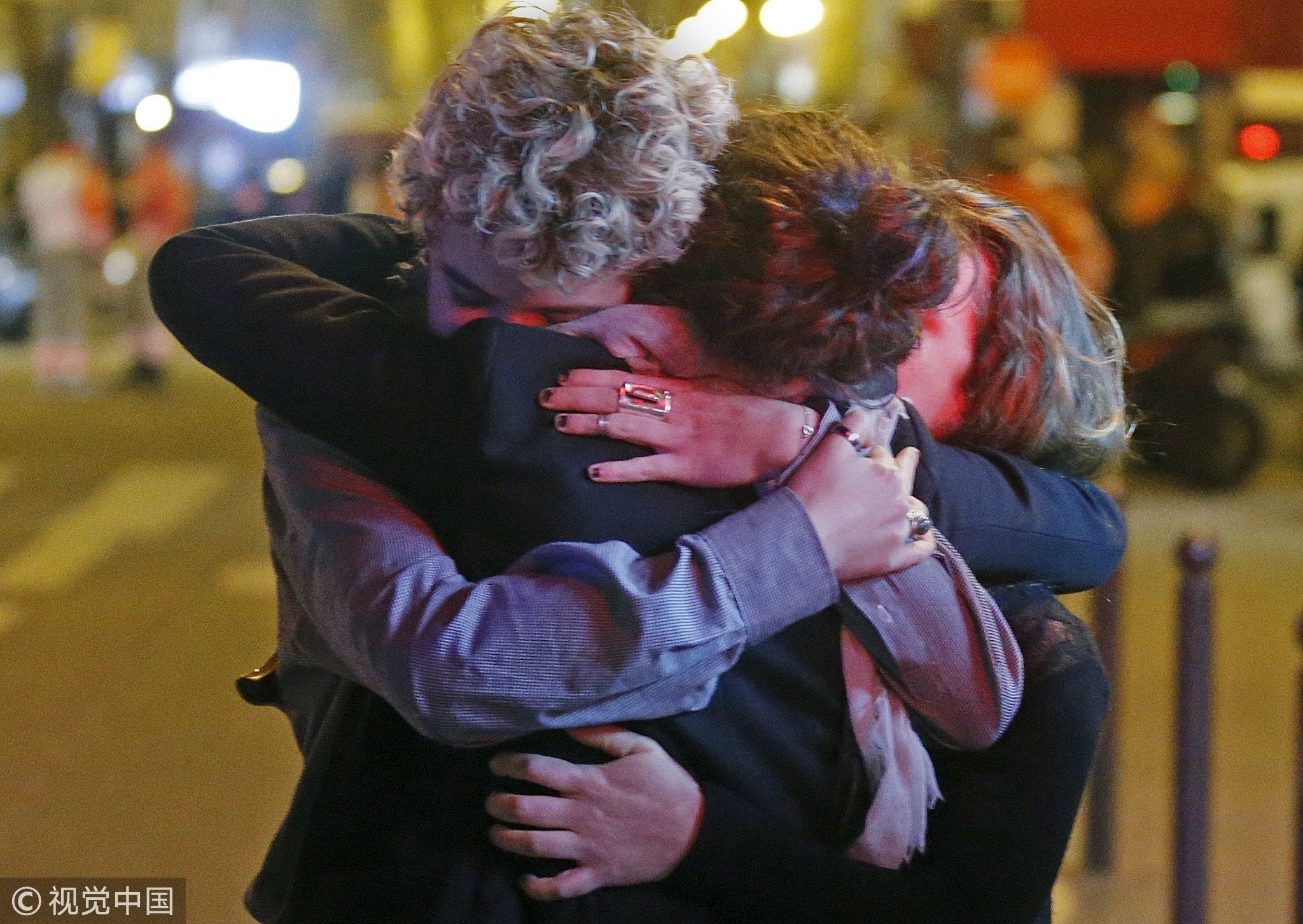
People hug on the street near the Bataclan concert hall following fatal attacks in Paris, France, November 14, 2015. /VCG Photo
People hug on the street near the Bataclan concert hall following fatal attacks in Paris, France, November 14, 2015. /VCG Photo
But their documentary mini-series, “Attack on Paris” — which will be released on Netflix on Friday — tells the story through the eyes of those at the heart of the drama.
Through 40 interviews with survivors, the first police and ambulance officers at the scenes and former French president Francois Hollande, the pair try to recreate the terrible night which began with a suicide bombing at the Stade de France football stadium.
Connection with survivors
“You get the feeling that (the survivors) are all looking you in the eye” as they tell their stories, Jules Naudet told AFP.
“It was about creating a bubble where you forget the outside world” and are plunged back into the events which “are told in the present tense,” he added.
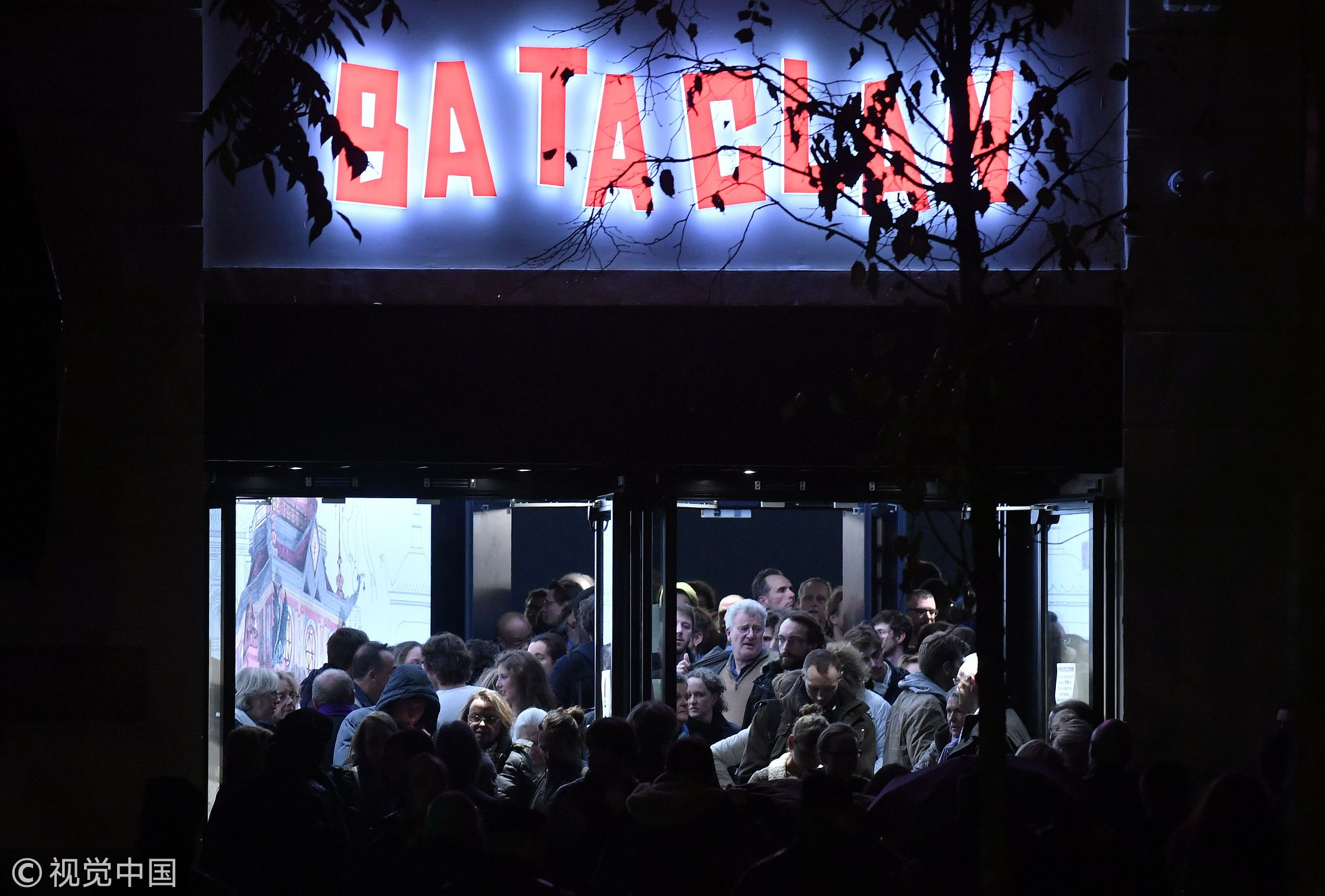
People leave the Bataclan concert hall in Paris on November 12, 2016, after the reopening concert by British musician Sting to mark the first anniversary of the November 13 Paris attacks. /VCG Photo
People leave the Bataclan concert hall in Paris on November 12, 2016, after the reopening concert by British musician Sting to mark the first anniversary of the November 13 Paris attacks. /VCG Photo
His brother Gedeon said the fact they themselves had lived through a major terror attack — the pair were with the firefighters as they tried to evacuate the towers — helped create a bond with the survivors.
“They talked about things that you share between survivors. They themselves were surprised that they were so open, like you would be in therapy,” he said of the interviews, which were filmed over the course of eight months.
“We told them about what happened to us on September 11, the stages of trauma we went through, and they were very curious,” Gedeon Naudet added.
One of the most surprising things to emerge from the documentaries was the manner in which many of the survivors talk about the gunmen.
None of the jihadists are ever named — nor is the Islamic State mentioned — so “the films can never be used as propaganda,” the brothers say.
‘The angry little git’
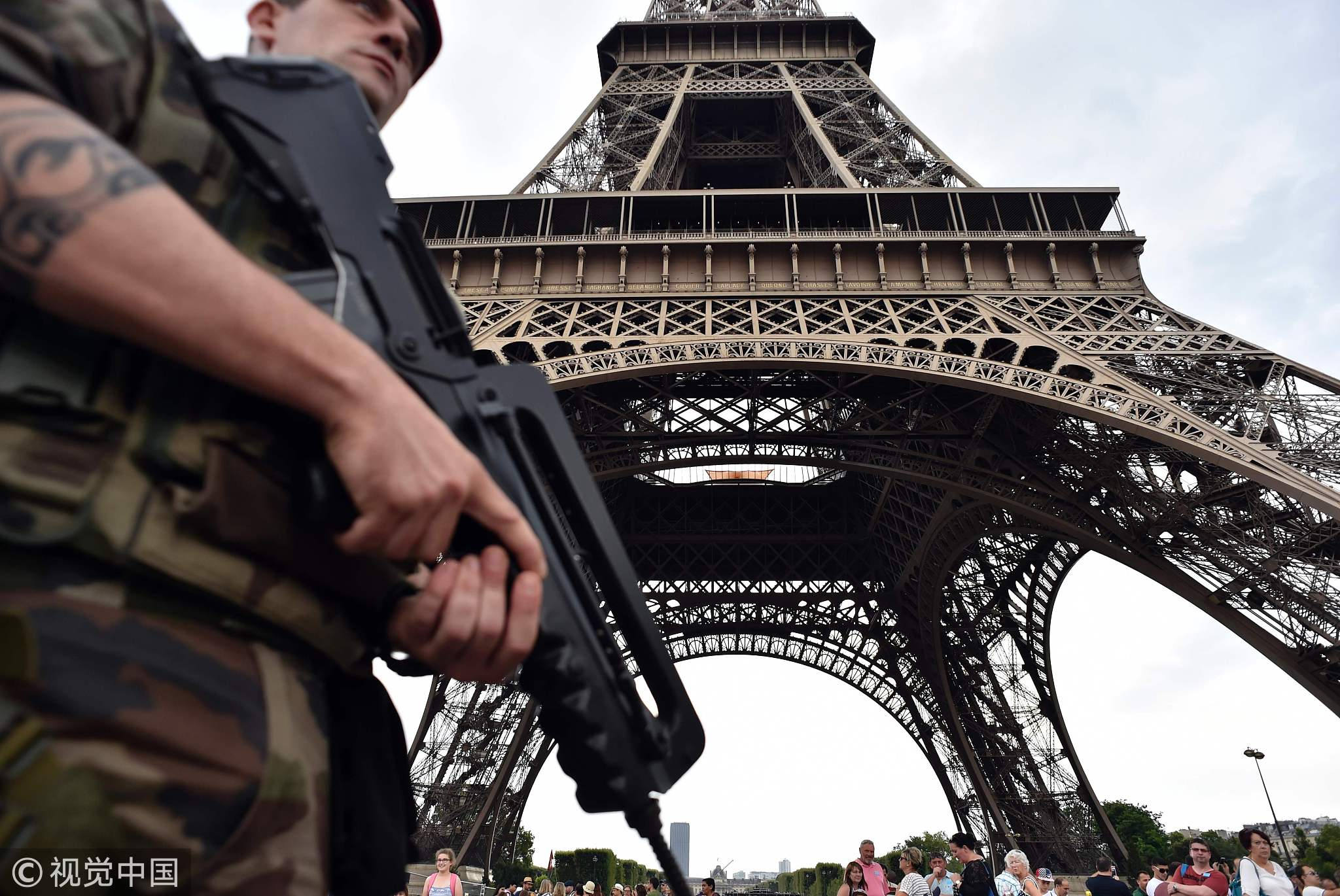
This file photo taken on July 20, 2016 shows an armed French soldier of the 35th RAP (35e regiment d'artillerie parachutiste), part of Operation Sentinelle, patrolling near the Eiffel tower in Paris. /VCG Photo
This file photo taken on July 20, 2016 shows an armed French soldier of the 35th RAP (35e regiment d'artillerie parachutiste), part of Operation Sentinelle, patrolling near the Eiffel tower in Paris. /VCG Photo
Instead, the Bataclan survivors refer to the killers with barely concealed derision, remembering “the big dumbo” or “the angry little git,” describing them collectively as blundering “donkeys.”
One woman taken hostage as the attackers holed themselves up at the end of the siege, had a typically Parisian take on their dress sense.
“I not going to be killed by some guy in jogging pants,” she said to herself.
But others made no attempt to hide the horror that was unleashed as the gunmen burst in on a concert by US band Eagles of Death Metal.
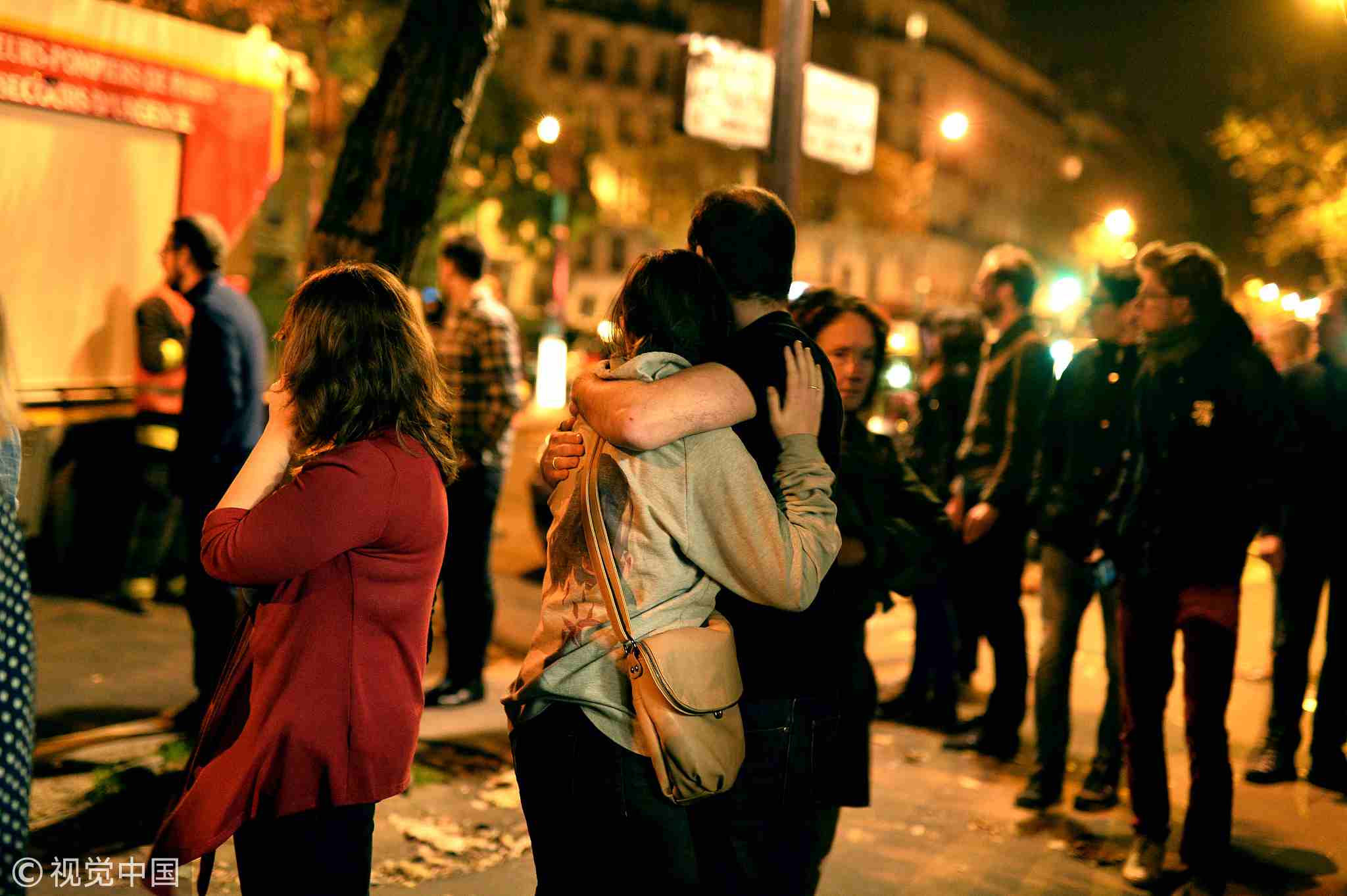
Parisians look at the scene outside the Bataclan concert hall after an attack on November 13, 2015 in Paris, France. /VCG Photo
Parisians look at the scene outside the Bataclan concert hall after an attack on November 13, 2015 in Paris, France. /VCG Photo
“The room transformed into an immense collective cry of agony,” one survivor recalled, while another talked of the “discreet heroism” of people trying to help each other in the most dangerous of circumstances.
“It was so horrible that after a while my brain just cut off the sounds because it was unbearable,” said a third.
Christophe Molmy, head of the police intervention brigade (BRI), said what he and his officers saw when they stormed the building will be forever “chiseled into our memories… It made me think of Dante’s ‘Inferno’,” he said.
Source(s): AFP

